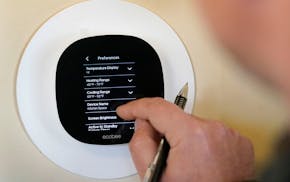If you're looking for a job in this economy, consider adding social media to your tool kit.
Specifically, Twitter, Facebook, and LinkedIn -- used correctly -- can help you find work faster.
To get the latest tips, I spoke with Dan Schawbel, author of "Me 2.0, Revised and Updated Edition: 4 Steps to Building Your Future," published in October 2010.
According to Schawbel, job hunting is now giving way to people hunting, with social media leading the way.
"Instead of submitting your resume to corporate Web sites or by email, you can use online tools to find people doing work for companies that interest you," he says. After hunting down the right people, form relationships with them, and a job opportunity can result.
So, what are the best ways to use Twitter, Facebook, and LinkedIn?
"Use them together -- that's the secret," says Schawbel. "Twitter is valuable as a first handshake. It is public networking, like a cocktail party. You are in the midst of a lot of other people," which encourages spontaneous conversations with new networking contacts.
Schawbel recommends Twellow.com, a free web site that lets you search Twitter for people by position, geography, or company name.
"Maybe you want to be an HR generalist right out of college. You would follow these types of people, and continue conversations they start. They might ask a question or share a link with you," which can lead to a conversation offline.
For best results, link your Twitter profile to your LinkedIn page or blog. Why? There's simply not enough room on Twitter to tell your full story. Doing so can lead to your ultimate goal: an in-person meeting, according to Schawbel.
What about Facebook? You know the basics, like not posting pictures of you cavorting in a grass skirt. What else should you do to find a job?
"Never send a Facebook message to a potential employer without having already established a relationship," says Schawbel. "Otherwise, it will look like spam and you have no shot."
Key: Know your audience. The moment you add your manager as a Facebook friend, for example, your communications change forever. "Always understand whom you want to accept as part of your Facebook network, and then publish content to suit that audience."
Also, for many people over 30, like me, Facebook is an inappropriate place to make first contact. Especially if your goal is professional networking.
Instead, reach out on LinkedIn, where folks want to be contacted. "People on LinkedIn are job seekers and executives, and the average salary is $106,000, by the way. You are connecting with a lot of people who can actually make decisions to get you hired," says Schawbel.
What should be your first move on LinkedIn? Start by filling out your complete profile. Believe it or not, most people don't, according to Schawbel.
"First, you have to make your LinkedIn profile flawless, your blog or Web site flawless. Everything has to be perfect," he says. Then it's time to communicate, "when you use the tools to connect with people who can take your career to the next level, or hire you."
After your profile is completed on LinkedIn, Schawbel suggests that you join LinkedIn Groups. "These let you connect with people as friends and become better known to communities that will be more accepting of you, because you are interested in marketing, finance, operations" or some other shared interest.
Unless you get an introduction or know their e-mail address, you cannot connect to strangers on LinkedIn. "This is why you should accept everyone as a LinkedIn contact who asks you," says Schawbel.
The more first first-level contacts you have, the more opportunities you get to connect with other people. "It only helps you. A person with only five LinkedIn contacts looks bad, but a person with 5,000 looks really good," advises Schawbel.
Now. If these suggestions for Twitter, Facebook, and LinkedIn all sound like networking by another name, that's because they are.
And, as technology makes it easier to reach out and touch people on social media, job hunting will become more of a networking game and less of an impersonal process of zapping out resumes by email or on web sites.
Those faceless, automated tactics don't work, according to Schawbel. "Especially because the amount of resumes recruiters receive is astronomical. You will not be found in that sea of clutter."
Short term, the faster you form relationships at employers, the faster you can be employed. Long term, the more relationships you have, the stronger your job security will be.
Either way, success in your career ultimately results from one thing only: other people.
Kevin Donlin is contributing co-author of "Guerrilla Marketing for Job Hunters 2.0." Since 1996, he has provided job-search help to more than 20,000 people. For a free Guerrilla Job Search audio CD, visit MyNewJobHunt.com.
Starbucks takes on the federal labor agency before the US Supreme Court
Stock market today: Wall Street poised to open with gains as corporate earnings reports pour in
